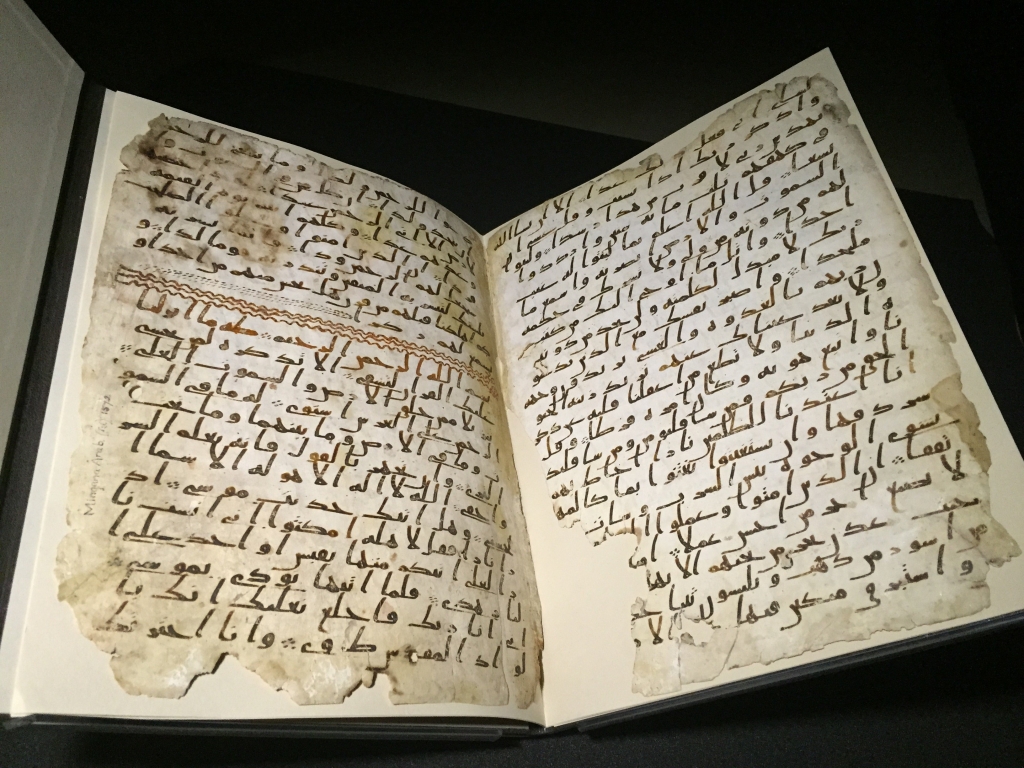-
Tips for becoming a good boxer - November 6, 2020
-
7 expert tips for making your hens night a memorable one - November 6, 2020
-
5 reasons to host your Christmas party on a cruise boat - November 6, 2020
-
What to do when you’re charged with a crime - November 6, 2020
-
Should you get one or multiple dogs? Here’s all you need to know - November 3, 2020
-
A Guide: How to Build Your Very Own Magic Mirror - February 14, 2019
-
Our Top Inspirational Baseball Stars - November 24, 2018
-
Five Tech Tools That Will Help You Turn Your Blog into a Business - November 24, 2018
-
How to Indulge on Vacation without Expanding Your Waist - November 9, 2018
-
5 Strategies for Businesses to Appeal to Today’s Increasingly Mobile-Crazed Customers - November 9, 2018
Discovery of ‘oldest’ Quran stirs new passions in British city
The two well preserved parchments were closely written in elegant scripts have been radiocarbon-dated to between AD568 and AD645, tested at Oxford at an accuracy rate of 95.4%.
Advertisement
David Thomas professor of Christianity and Islam at the University of Birmingham told the BBC that the author may have known the prophet: “The person who actually wrote it could well have known the Prophet Muhammad (peace be upon him)”. A side by side comparison of the old and modern day manuscripts shows that not a single word in the oldest manuscripts differ from the manuscripts we read nowadays which means that the word of the Holy Quran has remain unchanged from when it was written in the time of Prophet Muhammad (PBUH) more than 1400 years ago.
The university’s director of special collections, Susan Worrall, said researchers had not expected “in our wildest dreams” that the documents would be so old. With the manuscript consisting of two parchment leaves and containing parts of Surahs, it will be studied with interest by scholars of religion.
The pages of the Muslim holy text are said to have been kept in the university’s Mingana Collection of Middle Eastern manuscripts and remained unrecognised in the university library for nearly a century.
The university says that the Quran fragments will be on display at the Barber Institute in Birmingham in October, with the chairman of the Birmingham Central Mosque expecting it to attract people from all over Britain.
The local Muslim community has already expressed its delight at the discovery in their city, where they claim that Birmingham now has a “treasure that is second to none”.
“At this time, the divine message was not compiled into the book form in which it appears today”.
“The parts of the Koran that are contained in those fragments are very similar indeed to the Koran as we have it today”.
Dr Muhammad Isa Waley, Lead Curator for Persian and Turkish Manuscripts at the British Library, says, “This is indeed an exciting discovery”.
The researchers hailed the discovery as being of particular significance to Birmingham because the city is culturally diverse with a large Muslim population. She convinced the university to have the document sent out for radiocarbon testing, which revealed that the text was old enough to have been transcribed by a contemporary of the Prophet Muhammad.
“We know now that these two folios, in a lovely and surprisingly legible Hijazi hand, nearly certainly date from the time of the first three Caliphs”.
“The Muslim community was not wealthy enough to stockpile animal skins for decades, and to produce a complete Mushaf, or copy, of the Holy Quran required a great many of them”.
Advertisement
“And it seems to leave open the possibility that the Uthmanic redaction took place earlier than had been thought or even, conceivably, that these folios predate that process”.





























